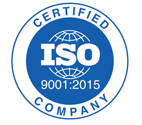As pharmaceutical and biotech companies strive to meet evolving FDA standards, they encounter rigorous inspections aimed at ensuring quality, safety, and compliance. In 2024, FDA inspections revealed several recurring compliance challenges within these industries, underscoring areas for improvement. Here, we explore the top inspection findings that reflect current regulatory priorities and potential risks for organizations.
- Data Integrity Violations
- Overview: Data integrity remains a primary focus during FDA inspections, as regulators aim to ensure that companies maintain complete, accurate, and consistent data.
- Common Issues: The FDA frequently identified gaps in data control measures, such as inadequate audit trails, poor electronic record management, and insufficient training on data integrity practices. Unintentional data manipulation and system access control issues were also flagged.
- Impact on Compliance: Without proper data governance, companies risk producing unreliable data that could compromise patient safety. To mitigate this, firms are implementing stricter access controls, validating electronic systems, and revisiting training programs.
- Deficient Quality Control and Risk Management Processes
- Overview: Quality control is crucial for mitigating risks across all stages of pharmaceutical and biotech product development.
- Common Issues: Inspections often revealed lapses in risk management plans, inadequate identification of potential hazards, and failures to implement corrective and preventive actions (CAPA). The FDA found that companies were not conducting thorough root cause analyses, leading to repeated quality issues.
- Impact on Compliance: Failure to demonstrate a robust risk management framework can result in corrective actions or warning letters. In response, many companies are enhancing CAPA procedures, conducting more rigorous risk assessments, and integrating preventive measures into quality control systems.
- GMP Non-compliance in Manufacturing Processes
- Overview: Good Manufacturing Practices (GMP) compliance is a core component of FDA inspections to ensure the safety and efficacy of products.
- Common Issues: The FDA observed a lack of adherence to GMP standards, particularly in sterilization practices, cleanroom maintenance, and batch record accuracy. Inadequate cleaning protocols, undocumented deviations, and failure to validate manufacturing processes were recurring findings.
- Impact on Compliance: These GMP deficiencies can lead to product contamination, recalls, or even enforcement actions. Companies are increasingly investing in automated systems to monitor GMP compliance and are enhancing their SOPs and training around manufacturing practices.
- Weaknesses in Laboratory Controls
- Overview: Laboratory control issues were a consistent theme, especially in areas related to testing and stability studies.
- Common Issues: The FDA identified instances of incomplete documentation, failure to conduct appropriate laboratory testing, and unapproved deviations in testing protocols. Weak controls in lab processes raised concerns about data reliability and product quality.
- Impact on Compliance: Lab control deficiencies can jeopardize the accuracy of test results and product release decisions. Companies are now tightening laboratory protocols, enhancing documentation practices, and implementing real-time monitoring of lab processes.
- Supply Chain Management and Vendor Qualification Gaps
- Overview: With the global supply chain complexity, vendor qualification and oversight have become crucial.
- Common Issues: The FDA found that some companies did not fully qualify or regularly audit suppliers. Additionally, gaps in verifying supplier-provided raw materials and active pharmaceutical ingredients (APIs) were observed.
- Impact on Compliance: Unqualified vendors pose a significant risk to product quality. Companies are strengthening supplier qualification processes, increasing oversight on third-party suppliers, and ensuring consistent quality across the supply chain.
- Deficient Complaint Handling and Adverse Event Reporting
- Overview: Timely complaint management and adverse event reporting are critical in the pharmaceutical and biotech sectors.
- Common Issues: Inspectors noted that some companies did not investigate complaints thoroughly or failed to report adverse events within required timeframes. In some cases, tracking systems for complaints and adverse events were outdated or ineffective.
- Impact on Compliance: Deficient complaint handling can expose companies to serious compliance risks, impacting patient safety and company reputation. Improved reporting systems, rigorous complaint tracking, and swift response protocols have been prioritized by companies to address these issues.
- Inadequate Cybersecurity Measures for Digital and Connected Devices
- Overview: As biotech and pharmaceutical companies increasingly rely on digital technologies, cybersecurity has become a critical focus.
- Common Issues: The FDA found insufficient protection against cybersecurity risks, such as lack of security testing for connected devices, poor access controls, and inadequate incident response plans.
- Impact on Compliance: Weak cybersecurity can result in data breaches and compromised patient safety. Companies are investing in advanced cybersecurity frameworks, conducting regular vulnerability assessments, and implementing thorough data protection protocols.
Conclusion
In 2024, FDA inspections in the pharmaceutical and biotech industries highlighted ongoing challenges in data integrity, GMP compliance, and risk management, alongside emerging concerns around cybersecurity. By proactively addressing these findings, organizations can enhance their compliance and contribute to safer, more effective products. As FDA scrutiny continues to evolve, a forward-thinking approach to quality control and regulatory adherence will be essential for sustaining trust and compliance in this highly regulated industry.
By understanding and addressing these top FDA findings, pharmaceutical and biotech companies can strengthen their compliance frameworks and avoid the costly consequences of non-compliance.
Support for Your Quality Assurance and Regulatory Compliance Needs
If you need any assistance with respect to Quality or Regulatory Compliance matters, please contact us at PRP. We understand how challenging it can be to maintain compliance while managing your day-to-day operations. We have a large, experienced team of QA/RA consultants throughout the country who can seamlessly integrate with your team to fill any gaps in expertise or bandwidth, ensuring you stay on track with your compliance goals. We would welcome the opportunity to work together! Book an appointment with our CEO, Stefanie Wichansky to discuss how we can support your needs.
|
|


